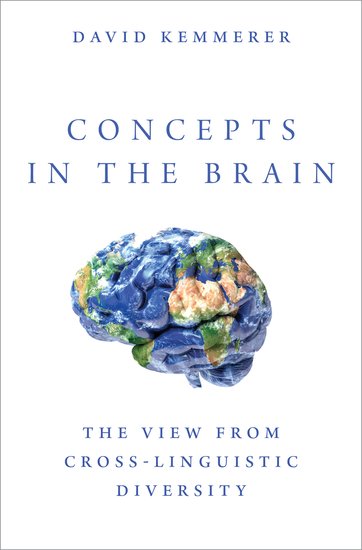
The View From Cross-linguistic Diversity

The View From Cross-linguistic Diversity

There are roughly 6,500 languages in the world, and they display numerous similarities and differences in the concepts that they encode. This book argues that cognitive neuroscientists must take these findings seriously if they are ever to achieve a truly comprehensive, pan-human account of the cortical underpinnings of semantic knowledge.
Levertijd op aanvraag
For most native speakers of English, the meanings of ordinary words like "blue," "cup," "stumble," and "carve" seem quite natural and self-evident. It turns out, however, that they are far from universal, as shown by recent research in the discipline known as semantic typology. To be sure, the roughly 6,500 languages around the world do have many similarities in the sorts of concepts they encode. But they also vary greatly in numerous ways, such as how they partition particular conceptual domains, how they map those domains onto syntactic categories, which distinctions they force speakers to habitually attend to, and how deeply they weave certain notions into the fabric of their grammar. Although these insights from semantic typology have had a major impact on the field of psycholinguistics, they have been mostly neglected by the branch of cognitive neuroscience that studies how concepts are represented, organized, and processed in our brains. In Concepts in the Brain, David Kemmerer exposes this oversight and demonstrates its significance. He argues that as research on the neural substrates of semantic knowledge moves forward, it should, to the extent possible, expand its purview to embrace the broad spectrum of cross-linguistic variation in the lexical and grammatical representation of meaning. Otherwise, it will never be able to achieve a truly comprehensive, pan-human account of the cortical underpinnings of concepts. Richly illustrated and written in an accessible interdisciplinary style, the book begins by elaborating the different perspectives on concepts that currently exist in the parallel fields of semantic typology and cognitive neuroscience. It then shows how a synthesis of these approaches can lead to a more unified and inclusive understanding of several domains of concrete meaning--specifically, objects, actions, and spatial relations. Finally, it explores a number of intriguing and controversial issues involving the interplay between language, cognition, and consciousness.